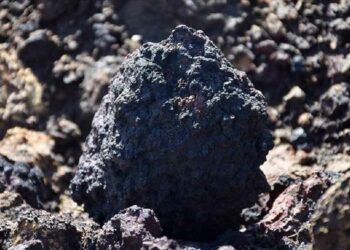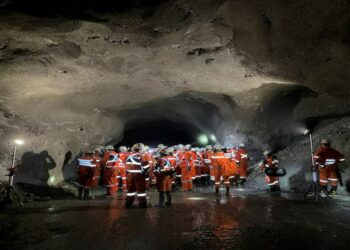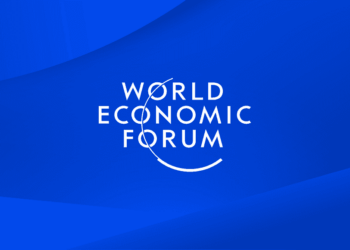The critical mineral potash, often overshadowed by battery elements like lithium or cobalt, plays a critical role in our global food system. As a key ingredient in fertilizer, it nourishes crops, boosts yields, and ultimately feeds billions. But the potash industry, long considered a giant, finds itself in a period of change. Geopolitical tensions, evolving agricultural practices, and a growing focus on sustainability are reshaping the industry, creating challenges and opportunities.
Geopolitics and Volatility
The war in Ukraine has cast a long shadow over the potash market. Russia and Belarus, together accounting for roughly 40% of global exports, have faced sanctions and disruptions, sending prices soaring. This volatility has exposed the precariousness of relying on a small handful of producers, prompting calls for diversification and a reassessment of supply chain resilience.
Beyond Bulk to Specialty Potash
While traditional MOP (muriate of potash) remains the dominant form, specialty potash varieties are gaining traction. SOP (sulfate of potash) is prized for its chloride-free nature, making it ideal for sensitive crops like fruits and vegetables. Organic and bio-based potash options are also emerging, catering to the growing demand for sustainable agricultural practices.
Precision Agriculture
The adoption of precision agriculture is transforming how potash is used. Sensors, data analytics, and targeted application techniques are helping farmers optimize fertilizer use, reducing waste and maximizing crop yields. This shift towards precision could potentially curb overall potash demand, but it also presents an opportunity for producers to develop customized solutions and advisory services.
Environmental factors are also influencing the potash industry. Traditional mining methods can have significant ecological impacts, while the production process itself is energy-intensive. Companies are exploring alternative extraction methods like solution mining and investing in renewable energy sources to reduce their environmental footprint.
Brazil Potash and the Autazes Potash Project
Brazil, a major agricultural powerhouse, is also getting set to enter the global potash market in a big way. Brazil Potash and its Autazes Potash Project could ultimately become one of the world’s largest potash mines. Located in the Amazon rainforest, the project and company are committed to sustainable practices and community engagement.
The goal for the project is to reduce Brazil’s dependence on imported potash, create jobs, and boost the local economy. Brazil Potash has also ensured rigorous environmental assessments, community consultations, and the implementation of best practices in sustainable mining.
The future of the potash industry is still evolving, but it is likely to look very different from the previous few decades. Geopolitical uncertainties, evolving agricultural trends, and the imperative for sustainability will continue to shape the landscape. Companies like Brazil Potash, with their commitment to responsible development and innovative solutions, have the potential to contribute to a more secure and sustainable food system for all.
The potash industry, if changed the way that market analysts and industry leaders anticipate, could be several times bigger by the time new projects come online. By embracing innovation, prioritizing sustainability, and fostering responsible development, the industry can ensure a future where potash nourishes crops, and the planet. The success of projects like Autazes Potash Project will also be closely watched, serving as a litmus test for the industry’s ability to balance economic growth with environmental responsibility, with the decisions made today having far-reaching consequences for decades to come.










